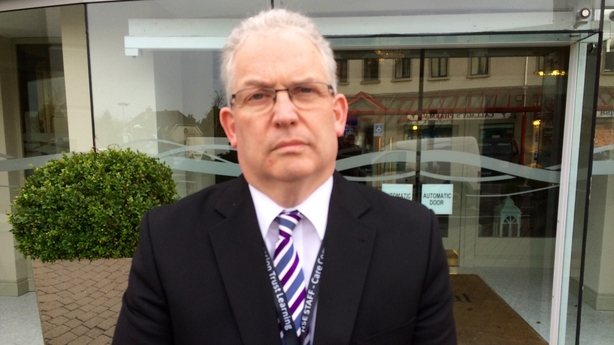The HSE has suspended full funding to a number of key health service providers due to their failure to sign service level arrangements, RTÉ's This Week has learned.
It follows a letter issued by the HSE's director general Tony O'Brien last February to all the so-called Section-38 and Section-39 health providers, a copy of which has also been seen by the programme.
In the letter, he warned that one-fifth of their funding would be suspended if they did not sign the annual statements covering agreed staffing, services and funding.

It is understood that the health providers were deeply concerned about aspects of Mr O'Brien's letter, which also warned that any HSE manager who continued to allocate funding to health bodies which had not signed the agreements by 1 March would be subject to a "performance issue".
The health providers believed this move would undermine the essential good relations between HSE's disability managers and the non-government health bodies built up over time, sources said.
Responding to a series of questions from RTÉ, the HSE said that this was "the first time this measure (the withholding of funding) has been introduced".
"In previous years, there had been a difficulty in getting the Service Arrangements signed in a timely manner".
The stand-off involves one of the country's 39 Section 38 service providers and a number of bodies funded under Section 39 of the 2004 Health Act.
The HSE has confirmed to RTÉ's This Week that a "small number" of bodies have had their full funding allocation suspended due to the failure to sign the SLA, but it declined to name those agencies or to say what the value of the withheld funds were.
The HSE also declined to say what, if any steps, it had taken to negate any negative impact on services provided by the bodies whose funding was currently suspended.
Sources close to a number of the Section 38 and 39 agencies said there was concern among the health providers that they had been asked to sign under duress.
Adding that the reason why such bodies were historically slow to sign these agreements was because they often only had a clear picture of both their funding provision and need closer to year end.
One well-placed disability sector source said that, following some intense discussions after Mr O'Brien's warning in February, many of the health providers had agreed to sign their SLA only after the HSE had agreed to provide what was described as a "cover letter".
This acknowledged that the services which the bodies were committed to were entirely dependent on the appropriate funding coming through.
In a statement, a spokesperson for the HSE said: "In the past, there had been some issues experienced in getting the Service Arrangements signed in a timely manner. As a result, it was decided that in the event of the Service Arrangements not being signed by 1 March 2016, 20% of the allocated funding would be withheld until such time as the documents were signed.
"It should be noted that it was made clear that that this did not represent a cut in funding or a fine, but rather was a withholding of an element of funding until such time as the Service Arrangements were signed.
"It was made clear that the withheld funding would be restored as soon as the Service Arrangements were signed. The Service Providers who had not signed the Service Arrangements were informed accordingly."
The spokesperson continued: "Following significant input from the agencies and the HSE, most of the highest funded agencies had completed and signed their Service Arrangements by the 1 March 2016.
"Derogations were applied in some instances and further engagement took place to ensure agreement was reached with those remaining to sign. All Section 38 Agencies except one have now signed.
"The vast majority of the Section 39 agencies representing 95% of funding have signed their Service Arrangements.
"While the deadline presented challenges for some agencies, the HSE is satisfied that it allowed for the governance framework to be implemented within a reasonable time period," the agency said.

